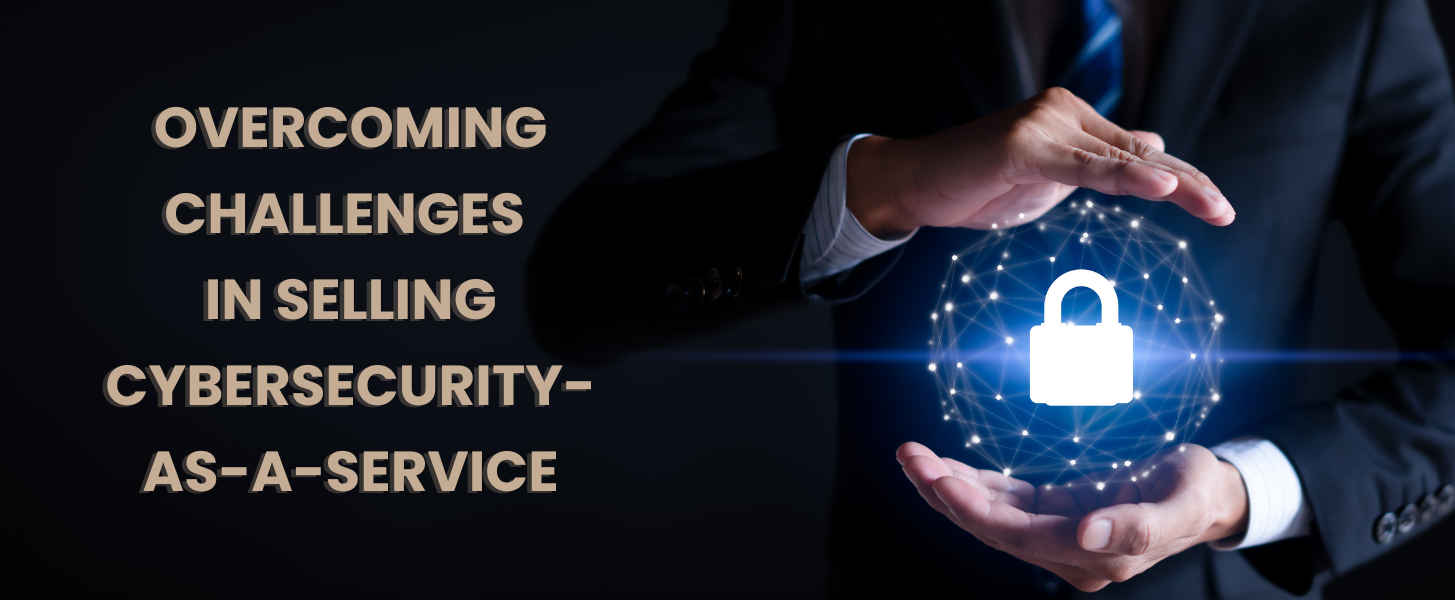
With the rise in cyber threats and increasing reliance on technology, businesses are facing growing challenges in protecting their data and systems. In response, Managed Service Providers (MSPs) are discovering an untapped goldmine in offering Cybersecurity-as-a-Service (CaaS). By integrating CaaS into their portfolios, MSPs can deliver comprehensive security solutions tailored to the needs of their clients while opening the door to exponential growth. This article explores how MSPs can capitalize on CaaS and why it represents a major opportunity for MSP sales.
The Rise of Cybersecurity-as-a-Service (CaaS)
The digital transformation sweeping through businesses has brought an increased reliance on cloud platforms, IoT devices, and mobile workforces. However, this transformation has also introduced new cybersecurity risks, from data breaches to ransomware attacks. Many organizations lack the resources or expertise to secure their environments, making them prime candidates for MSP services.
This is where Cybersecurity-as-a-Service steps in. Rather than handling security internally, businesses can rely on an MSP to manage all cybersecurity aspects on a subscription basis, ensuring they remain protected in a rapidly evolving threat landscape.
For MSPs, the shift towards CaaS offers a unique opportunity to align their services with the most pressing needs of today’s businesses. By offering scalable, proactive security solutions, MSPs can help their clients mitigate risks while boosting their revenue streams.
Why MSPs Should Focus on CaaS
1. Growing Demand for Cybersecurity Solutions
The global demand for cybersecurity is skyrocketing, and businesses of all sizes recognize the importance of robust security measures. According to reports, the global cybersecurity market is expected to grow from $173 billion in 2020 to over $270 billion by 2026. With an increasing number of cyber-attacks targeting small and medium-sized businesses (SMBs), the need for professional cybersecurity services has never been higher.
MSPs that specialize in CaaS can tap into this growing market by providing security services that are cost-effective and customizable to meet the specific needs of their clients. This high demand offers a steady stream of potential clients looking for managed security solutions.
2. Subscription-Based Revenue Model
One of the key advantages of offering CaaS is the ability to implement a subscription-based pricing model. Rather than one-time projects, MSPs can set up recurring revenue streams through monthly or annual subscriptions. This offers greater financial predictability for the MSP while giving clients continuous access to cybersecurity services.
A well-structured subscription model not only ensures stable revenue but also strengthens client relationships. MSPs that offer CaaS can bundle other services like network monitoring, data backup, and disaster recovery with cybersecurity, creating a comprehensive service package that clients find hard to resist.
3. Enhanced Trust and Client Loyalty
Building and maintaining trust is a critical factor in MSP sales. When businesses rely on an MSP to protect their data and systems, they’re entering into a relationship built on trust and reliability. Providing CaaS fosters deeper client relationships by consistently delivering valuable security solutions that protect their operations.
By offering proactive solutions that address current and emerging threats, MSPs can position themselves as indispensable partners. Over time, this trust can lead to higher retention rates, more referrals, and opportunities to upsell additional services.
4. Competitive Differentiation
The MSP industry is becoming increasingly competitive, with businesses constantly searching for providers that offer more than just basic IT support. Offering Cybersecurity-as-a-Service enables MSPs to differentiate themselves in the marketplace. By positioning themselves as cybersecurity experts, MSPs can stand out from competitors and attract clients who prioritize security.
This differentiation doesn’t just attract clients—it also increases the value perception of the MSP’s services. Clients are more willing to pay a premium for the peace of mind that comes from knowing their cybersecurity is in expert hands. For MSPs, this means higher profit margins and the ability to scale their business.
Key Components of a Successful CaaS Offering
To effectively sell Cybersecurity-as-a-Service, MSPs must ensure their CaaS offering is comprehensive, tailored, and proactive. Here are the critical components every MSP should focus on when delivering CaaS:
1. Risk Assessment and Vulnerability Management
Effective CaaS starts with a thorough risk assessment. MSPs must conduct regular audits of their clients’ systems to identify vulnerabilities and prioritize remediation efforts. By understanding their clients’ security gaps, MSPs can offer solutions that directly address those areas.
2. 24/7 Monitoring and Incident Response
Continuous monitoring is essential for detecting and mitigating threats in real-time. MSPs should offer round-the-clock network monitoring services to identify suspicious activity and prevent potential breaches. Additionally, incident response services are critical for minimizing the damage caused by cyber-attacks. Clients value the peace of mind that comes from knowing their systems are always being watched.
3. Threat Intelligence
Threat intelligence involves gathering and analyzing data about potential security threats and breaches. MSPs offering CaaS should integrate threat intelligence services into their offerings, allowing clients to stay ahead of emerging threats. By using advanced security technologies like AI-driven threat detection and machine learning algorithms, MSPs can detect and neutralize threats before they cause harm.
4. Data Protection and Compliance
Many industries, such as healthcare and finance, have strict data protection regulations like HIPAA or GDPR. MSPs offering CaaS must ensure that their security solutions include data encryption, secure data backups, and comprehensive compliance management. Helping clients meet compliance standards adds an extra layer of value to MSP services, protecting them from potential fines and penalties.
5. Employee Training and Awareness Programs
Human error is often the weakest link in cybersecurity. Providing clients with ongoing cybersecurity awareness training ensures that employees understand the best practices for handling data and recognizing phishing attempts or other social engineering attacks. MSPs can enhance their CaaS offering by including training modules and resources as part of their subscription.

Overcoming Challenges in Selling CaaS
While the benefits of CaaS are undeniable, MSPs face several challenges when positioning this service to potential clients. Here’s how MSPs can address some common objections:
1. Perceived High Costs
Some clients may believe that managed cybersecurity services are too expensive. MSPs can overcome this objection by clearly demonstrating the value of proactive security measures. Explaining the potential cost of a data breach—including fines, lost business, and reputational damage—can help justify the investment in CaaS. Additionally, MSPs can offer tiered pricing models that allow clients to start with a basic package and scale up as needed.
2. Lack of Cybersecurity Awareness
Many SMBs lack an understanding of how crucial cybersecurity is to their operations. MSPs need to take an educational approach when selling CaaS, emphasizing the growing threat landscape and the consequences of poor security practices. Using case studies, industry reports, and real-world examples can help drive the point home.
3. Competition from In-House IT Teams
Some organizations may prefer to keep their cybersecurity in-house. To counter this, MSPs should highlight the advantages of outsourcing to a dedicated security provider. MSPs can offer specialized expertise, advanced tools, and 24/7 monitoring—capabilities that are often too expensive or impractical for in-house teams to maintain.
Seize the Opportunity with CaaS
For MSPs looking to grow their businesses, selling Cybersecurity-as-a-Service represents a golden opportunity. The increasing demand for cybersecurity solutions, combined with the ability to offer recurring subscription models, provides a pathway to long-term growth and profitability. By focusing on MSP sales of CaaS, managed service providers can differentiate themselves from the competition, build stronger client relationships, and establish themselves as trusted security partners in an ever-evolving digital landscape.
Whether you’re an MSP just beginning to explore cybersecurity services or an established provider looking to expand your offerings, there’s never been a better time to dive into the world of Cybersecurity-as-a-Service.

